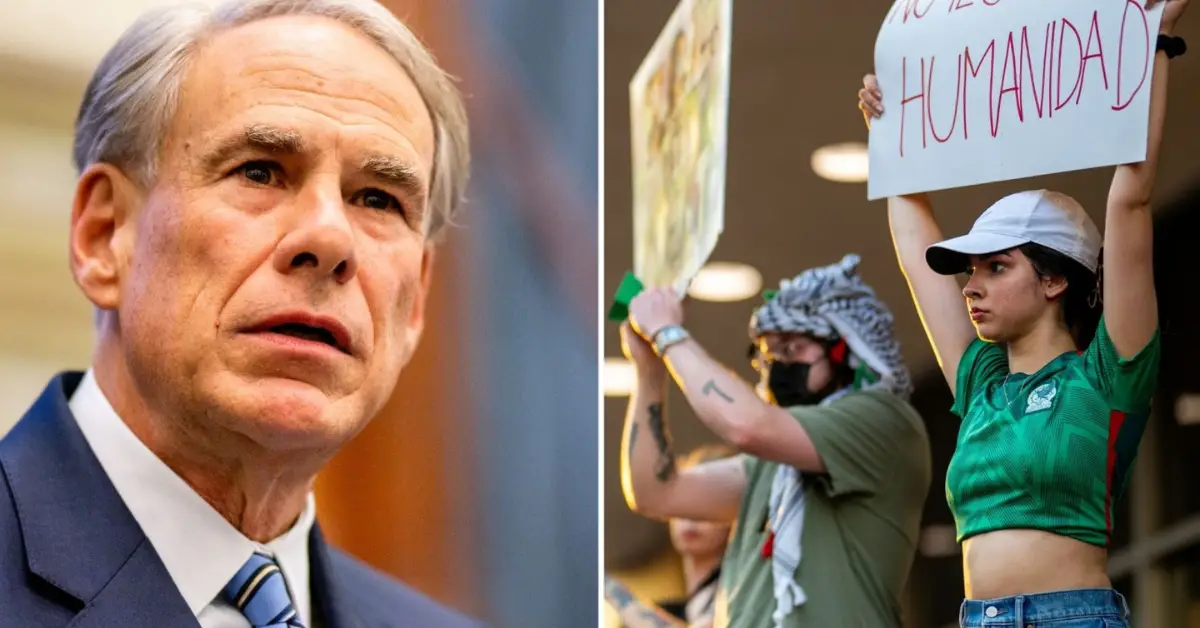The Supreme Court ruled 5-4 on Monday in a case that gave the Trump administration a significant victory in its legal battle concerning the deportation of Venezuelan nationals. The ruling allowed deportation flights to resume for Venezuelan migrants accused of having links to the dangerous gang Tren de Aragua, despite opposition from some justices.
Conservative judge Amy Coney Barrett joined three liberal justices—Sonia Sotomayor, Elena Kagan, and Ketanji Brown Jackson—in dissent, but the majority opinion decided to lift a temporary federal court order that had previously blocked these deportations. This decision sparked debates across political lines and renewed tensions over immigration policies.
The case revolved around a temporary restraining order that had been placed by a federal judge, which blocked the deportation of Venezuelan nationals suspected of ties to Tren de Aragua. The gang has been linked to a variety of criminal activities, including human trafficking, drug smuggling, and other violent crimes. The government argued that deporting these individuals was crucial for national security, but opponents of the policy claimed that it was unfair to target individuals without providing them proper due process.
Despite the objections, the majority of the justices ruled to lift the block, allowing deportations to proceed. However, the court also stressed that migrants must be given their due process under the law, including access to hearings and the opportunity to challenge their deportation orders. This ruling is seen as a major win for the Trump administration, as it aligns with its ongoing efforts to implement stricter immigration policies and reduce illegal immigration.

The decision caused an uproar, particularly among Trump’s supporters. Amy Coney Barrett, a conservative judge who was appointed by President Trump, has become a controversial figure in recent months. She had previously faced criticism from MAGA supporters when she voted against the former president’s request to withhold billions of dollars in foreign aid. In that case, Barrett sided with a majority of the court, which voted to reject the Trump administration’s stance. This time, Barrett’s dissenting vote added fuel to the fire, as many conservatives viewed her decision as a break from Trump’s policies.
In her dissent, Judge Sonia Sotomayor argued that the government’s actions in this case posed a direct threat to the rule of law. She expressed concern that the decision’s rushed nature could undermine the fairness of the legal process.
Sotomayor’s dissent also emphasized the importance of upholding due process and ensuring that individuals are not deported without a full and fair hearing. This perspective aligns with a broader belief that the legal system should prioritize human rights and the protection of vulnerable individuals, even in the face of national security concerns.
Judge Ketanji Brown Jackson, another liberal justice, echoed Sotomayor’s concerns, describing the majority’s approach as a “fly-by-night” decision. Jackson argued that the ruling rushed to a conclusion without carefully considering the long-term consequences of deporting individuals who might be unfairly targeted.
She also emphasized that the temporary restraining order had been put in place to prevent “immediate harm” to the individuals involved, allowing the court to assess the legality of the government’s actions carefully. According to Jackson, lifting the restraining order without proper consideration could harm innocent people who are caught up in the deportation process.
The dissenting opinions from Sotomayor and Jackson stand in stark contrast to the majority’s reasoning. While the majority acknowledged the importance of providing due process to the affected migrants, they also argued that the government’s interest in protecting national security outweighed the need for extended legal proceedings. The decision to lift the block on deportations is seen as a reflection of the court’s tendency to prioritize executive power in matters of national security and immigration policy.
This ruling is part of a larger trend in which the Trump administration, and now the Biden administration, has worked to strengthen immigration enforcement, particularly in relation to individuals with suspected criminal ties.
The issue of deportation, especially in cases involving alleged links to criminal gangs, remains a deeply divisive topic in U.S. politics. Supporters of stricter immigration policies argue that deporting individuals engaged in criminal activities is necessary to protect American citizens. On the other hand, critics contend that deportations should be carried out in a way that respects the rights of migrants and ensures fair treatment under the law.
For Amy Coney Barrett, the controversy surrounding her vote in this case reflects broader tensions within the conservative legal community. While Barrett has largely been viewed as a solid conservative judge, her occasional departures from the Trump administration’s position have led some to question her alignment with the former president’s policies. Despite this, Trump himself has defended Barrett, describing her as a “very good” and “very smart” woman. His praise for Barrett was meant to soften the criticism from his supporters, many of whom have expressed frustration over her more moderate stances in certain cases.
The legal battle over the deportation of Venezuelan nationals is just one example of the broader immigration debates that continue to shape U.S. policy. The Trump administration’s tough stance on immigration was a hallmark of his presidency, and many of his policies remain in place today.
The Biden administration has been criticised for maintaining some of these policies and reversing others, leading to ongoing debates about the best approach to immigration reform. This latest Supreme Court ruling adds another layer to the complex and contentious issue of how the United States handles immigration enforcement.
As the case continues to evolve, the ruling will likely have significant implications for future deportation policies and the broader legal landscape surrounding immigration. The balance between national security concerns and the protection of individual rights will continue to be a focal point in future legal battles, and the role of the Supreme Court in shaping these policies remains a critical aspect of the ongoing debate.
The decision also highlights the deep divides within the court itself, with justices like Barrett finding themselves at the center of controversies that reflect the polarized nature of American politics. While some view Barrett’s dissent as a principled stand for due process and fairness, others see it as a sign of inconsistency within the conservative ranks. Whatever the case, this ruling is unlikely to be the last word on the matter of deportations and immigration policy in the United States.
Disclaimer: This article has been meticulously fact-checked by our team to ensure accuracy and uphold transparency. We strive to deliver trustworthy and dependable content to our readers.




